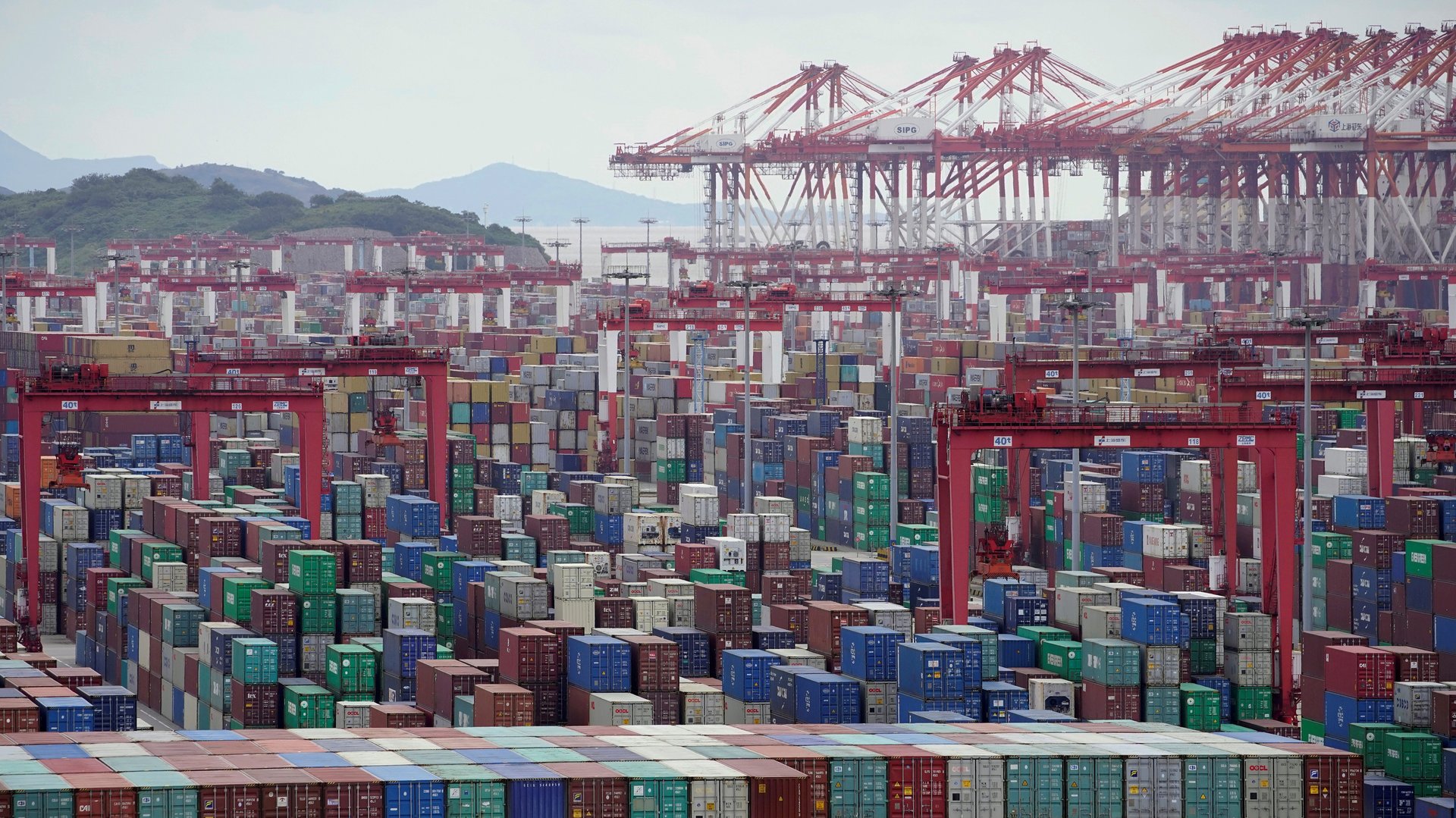JB Hunt says Shanghai’s lockdown will spell trouble for US ports again in July
Covid lockdowns in Shanghai are threatening to create fresh chaos at US ports just as they are slowly recovering from last year’s congestion and delays.


Covid lockdowns in Shanghai are threatening to create fresh chaos at US ports just as they are slowly recovering from last year’s congestion and delays.
Shelley Simpson, chief commercial officer of the US trucking giant JB Hunt, told investors on an April 21 earnings call that supply chains have experienced “a temporary relief” from shipping delays and labor shortages since last year.
But risks loom: West Coast port workers are bargaining for a new union contract, which could lead to strikes if negotiations fall through. And covid-lockdown related delays in Shanghai, home to the world’s busiest container port, could extend the high shipping prices and product shortages that plagued the global economy in 2021.
“That certainly is going to make its way back into the US here this summer,” said Simpson. “It just takes a little bit of disruption to really change the environment all over again.”
Last year’s supply chain crisis was the result of a series of smaller disruptions, including covid-related lockdowns at the Chinese ports of Yantian and Ningbo and a stuck ship blocking the Suez Canal. The Shanghai lockdown could set the overall recovery back, extending the economic pain into the middle of the year.
Ships idle in the Port of Shanghai
Shanghai is in the grips of its worst covid outbreak since the start of the pandemic. Authorities have responded by enforcing a city-wide lockdown that has kept most residents confined to their homes, but they have tried to limit disruptions by requiring workers to sleep at the port in a “closed loop” bubble.
Even so, ships are being loaded and unloaded more slowly. The volume of goods shipped out of Shanghai fell 23% between March 12, the day before partial lockdowns began in Shanghai, and April 16.
JB Hunt expects the delays that Shanghai is experiencing today to spread to the US West Coast by July. “We do forecast that to get a lot worse as we come into the summer months, particularly with what’s happening in the supply chain from an ocean perspective or in China coming inbound,” Simpson said. “We have had a lot of customers talk to us about that.”